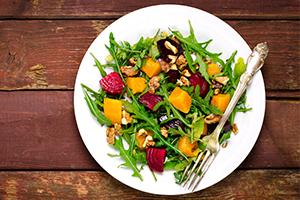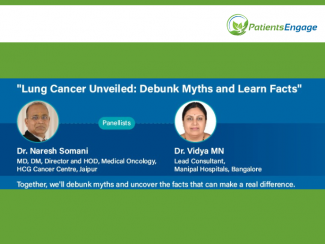
Among the ways to prevent cancer – eating a healthy, balanced diet could be your starting point. Try to consume all essential nutrients that will help detoxify your body, stimulate the immune system and prevent healthy cells from turning cancerous.
Over the last 25 years, research has produced dietary guidelines that have become conventional wisdom when it comes to cancer prevention. There are a number of substances present in our daily diet which are carcinogenic (cancer causing substances) and can increase the chance of getting cancer. It is wise to avoid them as far as possible. There are also a number of substances (antioxidants) that can protect you, reduce your chances of cancer and should be included wherever possible.
This piece guides you through a wholesome diet.
Fruits and Vegetables
Plant derived foods contain phytochemicals, nutrients that act powerfully to prevent healthy cells from turning cancerous, detoxifying cells and stimulating the immune system as well and its antibacterial and antiviral properties. All of these are helpful in maintaining a healthy inner environment that reduces the risk of cancer. Studies indicate that each daily portion (80-100gms) of fruits or vegetables reduces the risk of mouth cancer by approximately 20%, and stomach cancer by about 30%.
It is advisable to include vegetables and fruits of different colours like green (spinach, okra, pear), yellow (pumpkin, mango), red (beetroot, strawberry, watermelon), orange (carrot, orange, melon) and purple (eggplant,) in your diet, - a “rainbow” diet. This ensures that your body receives all the essential minerals and vitamins it needs to maintain good health.
Additives and pesticides are items which are introduced into our diet through commercially produced fruits and vegetables. These substances are potentially carcinogenic. To avoid ingesting them, wash well before eating or try to buy “organic” fruits and vegetables whenever possible. These organic products are grown without harmful chemical pesticides and fertilizers.
Fibre
Certain vegetables pass unchanged through the digestive system, being indigestible. These substances remain in the intestine and contribute to the formation of bulky stool, thus helping to ease out intestinal waste and also dilute and flush cancer causing toxins out of intestinal tract before they can do damage. Fibre is such material which is not digested by the body. It moves cancer causing compounds out of the body and reduces the risk of colon cancer. Foods rich in fibre include unrefined cereals, coarse breads, beans, fruits and leafy vegetables. High fibre intake (average 27gms/day) is associated with a 20% lower risk of bowel cancer.
Fat
Studies have shown that a high intake of fat (saturated fats like butter, coconut and palm oil) is associated with a higher risk of cancer. It is advisable to replace animal fats with vegetable ones (corn oil, olive oil, soybean oil)
Estrogen in young women is largely produced by ovaries, but after menopause, adipose tissue is the main source of estrogen which may fuel certain kinds of breast cancer. Maintaining a uniform body weight through appropriate physical activity and a healthy diet may reduce the risk of cancer.
Alcohol
Alcohol in small amounts (a glass of red wine a day) has been shown to have a protective effect on the heart; however, it has also been shown to be involved in increased risk of certain kinds of cancers, such as mouth, throat and voice box, bowel and liver and breast. The risk of digestive system increases in line with the quantity of alcohol consumed above 25g/day. One hundred grams a day of alcohol (roughly 1 ltr. of wine or 2ltr. of beer) has a 4-6 fold increased risk of these cancers compared to light or non-drinkers. It is also believed to accentuate the cancer causing effects of other carcinogens, especially tobacco.
Vitamins
Fruits and vegetables are the potential sources of vitamins, Vitamin B protects against and repairs chromosomal damage, strengthening immunity. There are free radicals which are molecules that circulate in the blood, attacking cells, weakening them and rendering them more susceptible to cancer. They are formed in the body due to normal day-to-day exposure. Vitamin A, C, and E are antioxidants, which help to neutralize these free radicals in the blood. Vitamin E is a known antioxidant and is used regularly as a food preservative. Today, many foods are fortified with vitamins such as C and E. Try to choose such products over unfortified varieties.
Physical inactivity
Physical inactivity is estimated to be the main cause of around 25% of Breast and Colon cancer cases globally. For adults at least 30 minutes of moderately -intense physical activity 5 days per week reduces the risk of these cancers.
Maintaining a healthy weight through appropriate physical activity and a healthy diet may reduce the risk of cancer.






